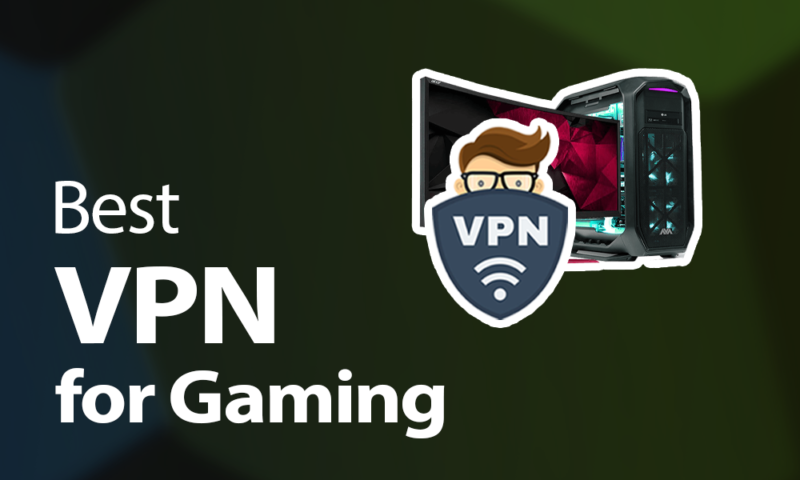Online gaming has never been more popular—or more competitive. Whether you’re playing first-person shooters, massive multiplayer online role-playing games, or sports simulations, performance is everything. For some players, using a VPN can enhance the experience by opening up new possibilities, such as accessing different matchmaking pools, avoiding bandwidth throttling, or bypassing restrictive firewalls.
After extensive testing of 61 different VPN providers across a wide range of devices, consoles, and game titles, ExpressVPN emerges as the best VPN for gaming in 2025, with a stellar score of 9.3/10. It delivers fast speeds, low latency, and top-notch security. For those looking for a free solution, Windscribe Free takes the crown as the best no-cost VPN for gamers—though it comes with limitations like data caps and reduced server coverage.
This guide covers the top-performing VPNs for gamers, compares their strengths and weaknesses, explains what a VPN can and cannot do for online gaming, and helps you choose the right one for your needs.
1. Understanding VPNs in the Gaming Context
There are many myths surrounding the use of VPNs for online gaming. Some claim that a VPN can boost your internet speed, eliminate lag, or let you play new releases before their official launch date. These claims are mostly false.
Here’s what a VPN can realistically do for gamers:
- Change your NAT type, allowing for more stable connections.
- Let you connect to easier lobbies and avoid skill-based matchmaking (SBMM).
- Circumvent ISP bandwidth throttling.
- Bypass geographic restrictions to play on different servers worldwide.
- Protect against certain types of targeted attacks, such as IP bans or basic denial-of-service (DoS) attempts.
However, a VPN will not:
- Magically improve your internet speed.
- Remove all lag or reduce ping beyond your local network’s capabilities.
- Allow you to play unreleased games early.
- Protect against all forms of DDoS without proper network configuration.
Because online gaming requires low ping, stable connections, and broad global server access, not all VPNs are suitable. A poor-quality VPN can actually make things worse—causing increased latency, frequent disconnects, or even getting your account flagged on certain platforms.
2. The Best VPNs for Gaming: Our Top Picks
1. ExpressVPN – Best Overall VPN for Gaming
Overall Score: 9.3/10
Ping: 9.7/10
Device Compatibility: 9.9/10
Server Network: 9.9/10
Gaming Features: 5.0/10
Security: 8.6/10
Price: From $4.99/month (28-month plan)
Pros:
- Exceptionally low ping (8ms in testing).
- Highly intuitive apps for PC, mobile, and routers.
- Smart DNS works seamlessly on consoles.
- Large network covering 106 countries.
- Consistently fast download speeds.
- 24/7 live chat support.
Cons:
- More expensive than most competitors.
- No port forwarding support.
ExpressVPN stands out for its exceptional performance across every category. Its combination of speed, reliability, and broad compatibility makes it a safe choice for all kinds of gamers—whether you’re on PC, PlayStation, Xbox, or even Nintendo Switch.
A standout feature is its router app, which makes it incredibly easy to cover every device in your household without installing individual apps. This also makes it one of the best VPNs for PS5 users, since Sony consoles don’t natively support VPN apps.
While it’s pricier than options like Surfshark or NordVPN, the premium cost is justified for serious gamers who demand the lowest possible latency and the most reliable performance.
2. Surfshark – Best for Mobile Gaming
Overall Score: 9.1/10
Ping: 10/10
Device Compatibility: 9.1/10
Server Network: 9.5/10
Gaming Features: 5.0/10
Security: 8.3/10
Price: From $1.99/month (28-month plan)
Pros:
- Low ping (9ms) and strong speeds.
- Feature-rich mobile apps for iOS and Android.
- Affordable long-term plans.
- Smart DNS support for consoles.
- Unlimited simultaneous connections.
- Zero-logs policy and 24/7 support.
Cons:
- No native router app.
- Higher ping on long-distance connections.
- No port forwarding.
Surfshark shines in mobile gaming scenarios thanks to its polished apps and built-in features like GPS spoofing for region-specific mobile titles. If you primarily play on your phone or tablet, Surfshark offers excellent value, especially with its low-cost long-term plans.
However, for competitive console gaming, Surfshark’s lack of a router app could be a drawback. Its performance on short-range connections is excellent, but ping can increase significantly on transcontinental routes.
3. NordVPN – Best for Easier Lobbies
Overall Score: 9.0/10
Ping: 9.7/10
Device Compatibility: 8.9/10
Server Network: 9.7/10
Gaming Features: 5.0/10
Security: 9.1/10
Price: From $2.99/month (27-month plan)
Pros:
- Very low ping (8ms).
- Massive server network (125 countries).
- User-friendly apps for PC and mobile.
- Smart DNS support.
- No IP leaks detected.
- 24/7 live chat.
Cons:
- No native router app.
- Prices increase after renewal.
- No port forwarding.
NordVPN’s expanded global server coverage gives it an edge for players wanting to join less competitive lobbies in different regions. Its combination of fast speeds and low latency makes it a solid choice for competitive shooters where reaction times matter.
That said, installing NordVPN on consoles requires more manual setup, since there’s no dedicated router app.
4. Windscribe Free – Best Free VPN for Gaming
Overall Score: 6.0/10
Ping: 10/10
Device Compatibility: 8.5/10
Server Network: 2.3/10
Gaming Features: 5.0/10
Security: 7.2/10
Price: Free (10GB/month data cap)
Pros:
- Surprisingly low ping (5ms).
- High download speeds for a free service.
- User-friendly apps.
- Servers in 10 countries (including US and UK).
- Unlimited simultaneous connections.
- Good privacy policy and no data leaks.
Cons:
- Small server network.
- Strict 10GB monthly data limit.
- No router compatibility.
- No Smart DNS.
Windscribe Free defies expectations for a no-cost VPN—its low latency and decent speeds make it suitable for casual gaming. However, its 10GB monthly cap makes it impractical for heavy online play, and lack of router support means it’s best for PC or mobile use.
3. VPNs That Didn’t Make the Cut
Despite their popularity, some well-known VPNs failed to meet our gaming standards:
- IPVanish – Small server network and no Smart DNS support.
- CyberGhost – High ping and slower download speeds over long distances.
- Norton VPN – Logs your IP address, has slow speeds, and limited privacy features.
While these VPNs might be fine for streaming or general browsing, they simply can’t deliver the low latency and stable performance competitive gaming demands.
4. Myths vs. Reality: What Gaming VPNs Can and Can’t Do
| Claim | True or False |
|---|---|
| Avoids SBMM and finds easier lobbies | ✅ True |
| Reduces ping and eliminates lag | ❌ False |
| Protects against DoS attacks | ✅ True |
| Protects against DDoS attacks | ❌ False (needs more than just a VPN) |
| Circumvents IP bans | ✅ True |
| Speeds up your internet connection | ❌ False |
| Prevents ISP bandwidth throttling | ✅ True |
| Lets you play unreleased games | ❌ False |
| Changes strict NAT type | ✅ True |
| Changes your App Store region | ✅ True |
| Bypasses local firewalls | ✅ True |
| Unlocks geo-restricted content | ✅ True |
5. Choosing the Right VPN for Your Gaming Needs
When selecting a VPN for gaming, focus on:
- Latency (Ping): Lower is better. Anything under 20ms is ideal.
- Speed: High download/upload speeds prevent stutter and buffering.
- Server Locations: More locations offer greater flexibility in matchmaking.
- Device Support: If you’re gaming on console, router compatibility is essential.
- Security: Strong encryption and a no-logs policy protect your privacy.
Final Recommendations
- For competitive console gaming: ExpressVPN is the clear winner for its router support and consistently low latency.
- For mobile-first gamers: Surfshark offers the best mix of performance, features, and price.
- For changing regions to avoid SBMM: NordVPN’s massive server network is unmatched.
- For free users: Windscribe Free is the best no-cost option, but data caps make it unsuitable for heavy play.
A VPN won’t transform your internet speed, but in the right circumstances, it can unlock new possibilities, improve privacy, and offer more control over your online gaming environment.




